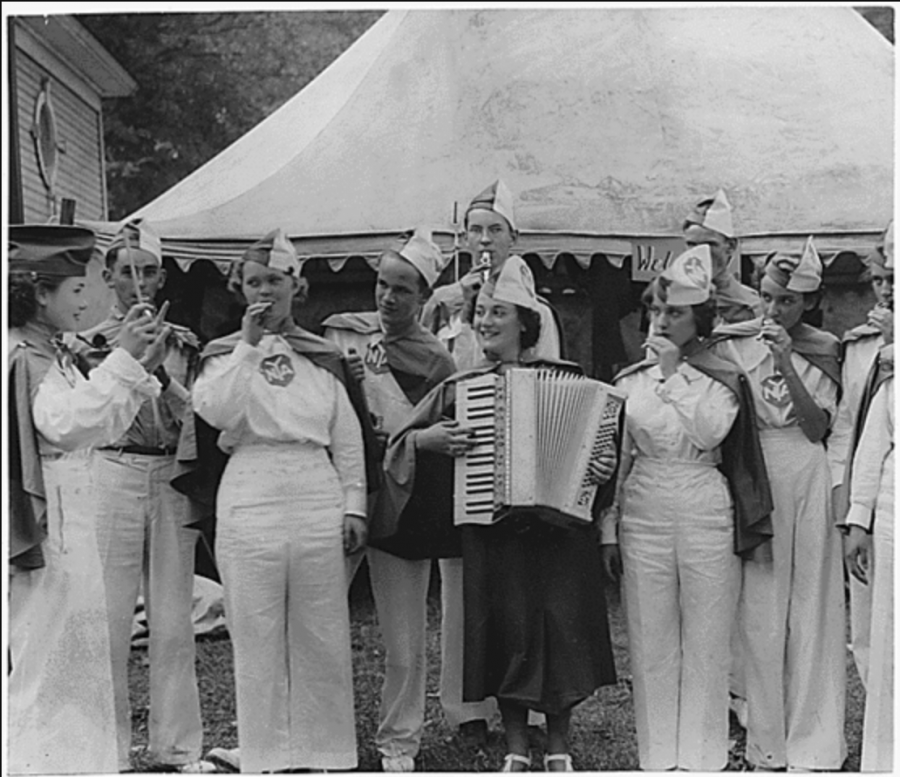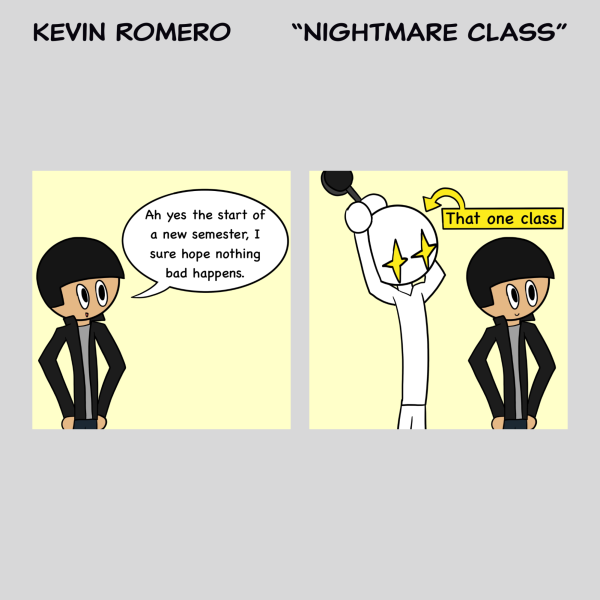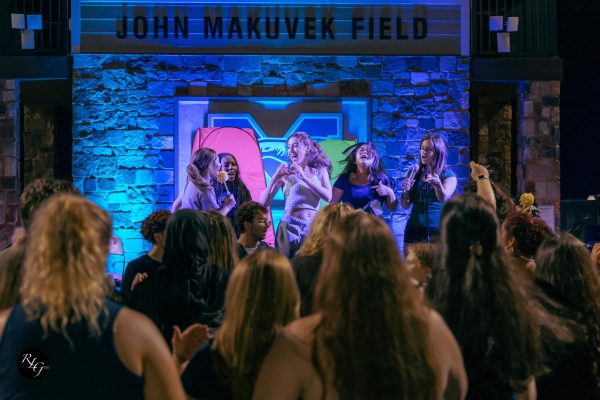Music Therapy Major Leads Kazoo Choir at Senior Center
When I told my mother I had volunteered to direct a kazoo choir at a nearby nursing home, she laughed so loudly that I had to hold the phone at arm’s length.
I demanded to know what was so funny, but she couldn’t hear me–she was too busy wheezing and gasping. If I hadn’t known any better, I would’ve thought that she was going into anaphylactic shock.
Again, and louder, I demanded to know what was so funny.
That sobered her up. “Oh,” she said. “You were being serious.”
Of course I was being serious, I said. Why would she think that I wasn’t?
“Because I thought you’d once said that you and old people don’t mix,” she explained.
I had said that, but only because once, while dropping my grandmother off at weekly bingo, one of her friends had accused me of bombing Pearl Harbor before I got the chance to tell him that I’m not Japanese.
“And really, Michelle,” my mom continued. “A kazoo choir? For what reason do you have to direct a kazoo choir?”
It was a bit disheartening to hear how doubtful my own mother was of the idea that I had volunteered to assist the elderly, but I couldn’t complain too much. She was right to be doubtful–I wasn’t doing this out of the goodness of my heart.
“They’re paying me fifty dollars,” I said.
“Ah. That explains it.”
The next day, I drove from Moravian College to the nursing home. It was a long, one-story brick building, planted right in the middle of an extensive parking lot. I pulled into a visitor’s spot and headed on through the entrance, located underneath a bright, red awning. It was the only thing that gave the place any hint of color.
I took the door handle and pulled. It wouldn’t open. I tried pushing. It still wouldn’t open.
Luckily, a middle-aged woman from inside spotted me through the glass and let me inside. She explained that they had to keep the doors locked at all times. Otherwise, a resident might try to escape.
I asked her where the kazoo choir rehearsed, and she led the way down a hallway that smelled so strongly of lemon disinfectant that my nose burned.
We quickly arrived at what appeared to be a small kitchen. There was a fridge and a stove situated along the far wall, and in the center of the room was a large, round table.
Seated around the table in wheelchairs were a dozen old women. In front of them were a dozen black binders and a dozen plastic kazoos. I introduced myself twice – they hadn’t heard me the first time. Then they introduced themselves.
There were six Ruths, four Gertrudes, and two Millies.
One of the Ruths explained to me that their binders, given to them by the previous director, contained more than fifty songs, and that we would have to pick three to perform at the home’s birthday dinner in two weeks.
Easy enough, I thought.
I asked which songs they liked the best. From there, it didn’t take long for an argument to ensue.
One Millie suggested “Bless This House,” but the other Millie said no–they had just played that at last month’s birthday dinner. Ruth Number Four quickly contradicted Millie Number Two and said she didn’t remember ever performing the song.
One of the Gertrudes spat that it was because her memory was “full of sh**.”
Not a second after she’d said that, a kazoo flew across the table and hit her in the face. When I tried to restore the peace, they turned on me.
Millie Number Two told me that my tight jeans made me look like a streetwalker. The other women cackled.
Insults and kazoos continued to fly across the room. I didn’t know whether to be amused or appalled. A classroom full of Kindergarteners would have behaved better than this. I thought back to my grandmother’s friend and the easy way with which he’d insulted me.
Did the elderly have no filters?
Driven by curiosity, I asked the closest Ruth why seniors felt they could say and do whatever they wanted to without so much as a second thought.
You stop caring what people think when you’re old, she said. The consequences aren’t there anymore. There’s no job to get fired from, most of their friends are dead, and their families don’t visit them, anyway.
“That’s sad,” I said.
She shrugged. “But we’re finally free.”
Free. These old, frail, wheelchair-bound women who lived in a building that had to be locked at all times like a prison, were free.
I wished I could have said the same for myself, but unlike them, I was overly mindful of my words.
Now that I was a senior in college, I felt that it was crucial for me to proceed the rest of the year with caution. I couldn’t risk losing my friends or pissing off the wrong people, not when I was already so vulnerable to the real world I’d not yet experienced.
Staying quiet ensured no mistakes.
But the same Millie who’d said I looked like a streetwalker told me that I needed to stand up for myself. If I kept letting people walk all over me, I’d end up a bitter woman like her.
It’s okay to speak what’s on your mind, she said. We have an infinite number of thoughts, but a limited number of days.
So I decided to put her teaching into practice.
“Okay,” I said. “I don’t look like a streetwalker.”












